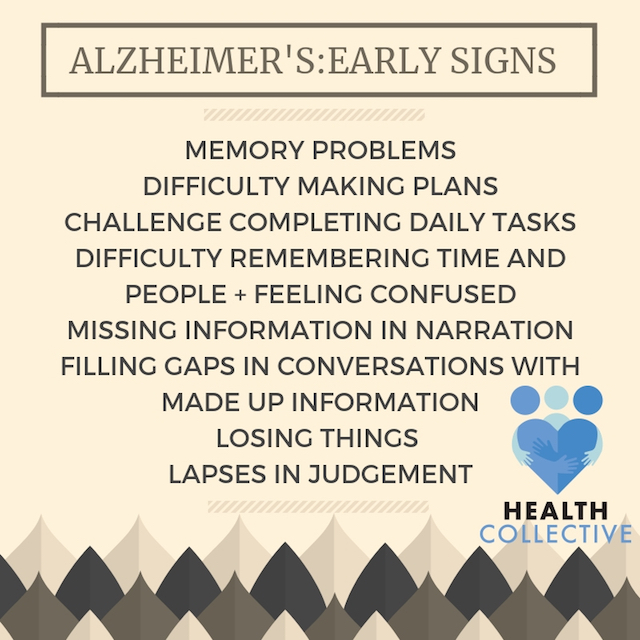Alzheimer’s: The Need for Compassion, Care
By Kamna Chhibber
In my work as a therapist I come across people who struggle with caring for someone who has been diagnosed with Alzheimer’s. The changes in life expectancy having altered the age to which human beings live has also created a dent in the issues that individuals face when they reach the later years. As a person gets older, besides physical health getting compromised, there is an impact on mental health and well-being, cognitive abilities, decision making, planning and executing.
ALSO READ: DEMENTIA: 5 THINGS NOT TO SAY TO A CARER
What is Alzheimer’s?
Those who are familiar with this aspect of growing old are also aware of the predisposition that we have towards developing Alzheimer’s as an individual gets older. Often used interchangeably with the term dementia, Alzheimer’s is a specific form of an illness in which symptoms of dementia are seen. Dementia is an umbrella term which is used to designate problems with thinking and memory, and can be caused by issues other than Alzheimer’s, like Huntington’s, Parkinson’s, to name a few.
We often miss the signs as the disease usually has an insidious onset, steadily creeping upon an individual as they find it difficult to recall names or find objects they had just kept somewhere. Some of the early signs that can indicate the onset of the problem include: development of memory problems, difficulty in making and sustaining plans, challenge in completing daily tasks, difficulty in remembering time and people and feeling confused, missing pieces of information in narration, filling gaps in conversations with made up information, losing things and having lapses in making judgements.

As the problem progresses, the amount of information that has gone missing increases with time. From the small things it starts encompassing the bigger things like what was eaten, whether one had a bath or not, or the conversation that just took place, till it reaches a point where the person may find it difficult to identify their family members or forget how to do tasks.
Meet Mrs Singh
Mrs Singh is 79 years old. When she was 63 the doctors informed her family that she has Alzheimer’s. The family found it difficult to understand as they had never heard about the condition.
As the doctors began to share more information, they were able to recognise that the changes in Mrs. Singh’s memory had begun much earlier. They recalled her having difficulty remembering names as long as 4 years ago when there was a marriage in the family and she struggled to keep up or remember who was who.
The years have gone by and despite all treatments which are known to slow down the process of deterioration and not cure the problem, today Mrs. Singh has reached a stage where she does not recognise her family members… Her grandchildren who she always adored evade her memory. She struggles to remember whether she ate her food or not. She gets into a very angry state when her daughter-in-law refuses to feed her again – but Mrs. Singh doesn’t remember that she just ate. And often she ends up getting very upset as she misses her father who has gone to his office and has not returned.
Her family in the meantime struggles with the loss of a parent despite her presence. The emotional upheaval they experience remains understated. They struggle to understand despite knowing what is going on. They repeatedly reach the end of their patience. And life seems to have come to a standstill for them. There are no more vacations and dinners or lunches as a family. One person has to be at home despite all the help and medical support that they have available as their conscience doesn’t allow them to leave her alone.
They recognise the need to find a way to normalise some part of their life but struggle to create it. As they face one difficult decision after the next, what gets most impacted is their compassion and self-care.

ALSO READ: MRS C REMEMBERS
Maintaining Compassion when Caring for someone with Alzheimer’s
There are no easy quick steps to caring for someone while struggling to maintain one’s own levels of compassion. A lot of families who care for someone struggling with an illness, (physical or mental health-related), experience what is termed as compassion fatigue. Determining ways to be able to continue to engage in caring for someone requires being mindful of what goes on with you and working to take care of yourself.
- At all times know how you are feeling and accept these feelings: It is tough to feel negativity in relation to your situation or towards a person who is struggling. Nevertheless, as you continue to care for others you can get exhausted yourself. Through this exhausted state it is important to recognise what you are feeling, and accept these feeling states. This alone is the first step that will allow you to continue to maintain your compassion as it enables you to continuously take care of yourself and know when you need to step back.
- Keep yourself informed at each step: Knowing what is going on in terms of the disease helps you keep pace with the changes you need to make within yourself to accommodate the shifts that are happening. It is important to stay connected to medical professionals who can guide you about what to expect and how to support your family member. Having the information in place enhances your confidence in what you doing and enables you to be prepared for the changes and transitions that are expected during the course of the illness.
- Be kind to yourself and avoid self-criticism: As you go through the different emotions remain kind to yourself and do not be overly harsh in your judgement of how you are doing. You would make your mistakes in caring for your family member. But that does not mean it makes you a wrong/ bad person. Criticising what you do and how you do it is never a good idea, particularly if you are not taking a constructive approach that allows you to modify how you are doing things.
- Give vent to your emotions within your support system: Having a support system is absolutely crucial for you to maintain your compassion and to take care of yourself. As you go through your experiences, being able to share what you think and feeling with someone can be a boon and also provide you with opportunities to think through how you need to be and what you need to do.
- Work towards taking care of your needs as well: In the midst of this continuous process of caring for an elderly person, you may find yourself forgetting about your own needs. Don’t make this mistake. If you want to continue being compassionate it is important to also find ways to do the things that you want to do and find the means to take care of your needs as well. The key is to create an intricate balance and being smart about filtering moments when you can take care of yourself.
- Speak to others who may be having a similar experience: Often the most novel solutions come out of speaking and discussing with those who are also struggling to cope with the same or similar situation. For example, if you know someone else who is also taking care of an elderly relative, remember to speak with them, support each other, and find your ways to circumvent the problems you experience through the sharing of thoughts and ideas with each other.
- Build some personal boundaries: This is perhaps the toughest task. Caring is a continuous process and not something that takes breaks unless you have the option of someone else caring for your family member. However, building your personal space while being mindful of the support that the elderly person in your family needs is very important. Find the time for yourself and draw a line beyond which you will try to not extend yourself. Don’t hesitate to involve the rest of your family or the help you have to ensure that you are able to maintain at least some of the boundaries that you are setting. And remember these boundaries would need to be flexible as you may need to alter them with time as the disease progresses.
Maintaining compassion for someone with Alzheimer’s disease is a longitudinal process in which you will go through your own ups and downs. You may struggle to continue providing care and the feeling will wax and wane, but self-care will always form an integral part of maintaining your compassion.
ALSO READ: SELF-CARE IN THIS JOURNEY CALLED LIFE
Views expressed are personal. The Health Collective cannot substitute for expert advice from a trained mental health expert. Reach out for help: do check for resources available across India.




Pingback: Understanding Dementia